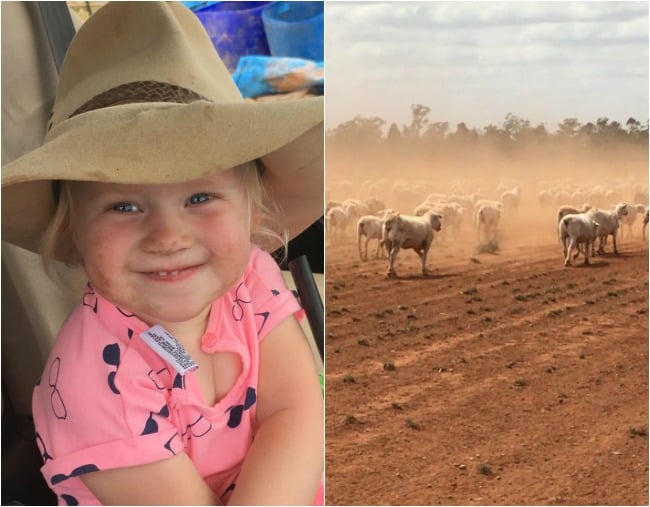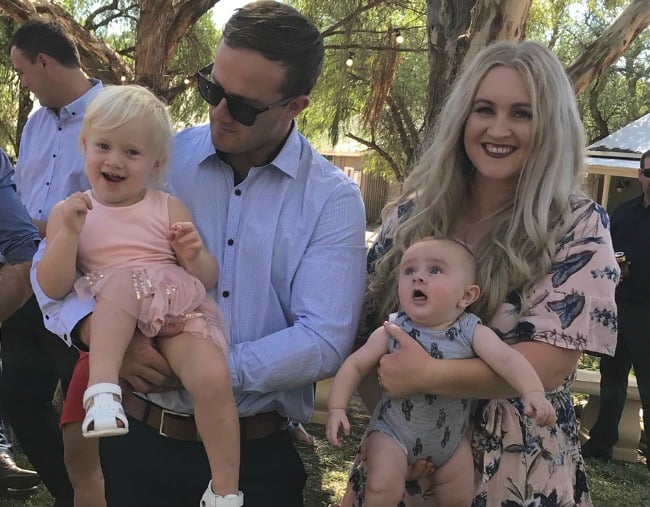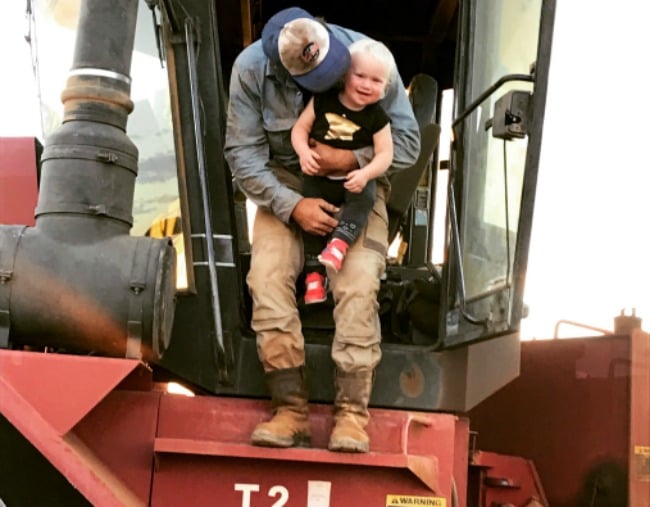
Jess Baker is living on hope right now.
She and her husband Joel have a 1800-acre sheep farm just outside of the rural NSW town of Nyngan, an area which, like 99 per cent of the state, is experiencing its worst drought in decades.
Until late June, there hadn’t been significant rain on the Baker’s farm since February 2017. But 44 millimetres of rain was not enough to come close to repairing the damage caused by almost 18 months of drought. Especially not when it hasn’t rained in the weeks since.
“We only bought our farm two years ago. We don’t have a lot of experience behind us. It’s quite daunting to be in a full-blown drought,” Jess tells Mamamia.
The lack of rain has meant the Bakers have been unable to feed their sheep on pasture crops and instead have to buy in feed and water to keep their sheep alive. It’s a costly process – especially when they’re barely receiving an income from the farm. Joel, 27, works a full-time job on another farm to support their two children, three-year-old Lily and nine-month-old Levi, in addition to the work he and Jess do on the farm.



Top Comments
This sounds like a terrible situation for a young family, but I don’t understand how anyone can decide to buy a sheep farm in NSW these days. This is the driest period in the last ten years not the last hundred years, and with climate change these droughts are going to happen far more frequently than every ten years. It’s just not a viable industry (arguably it never was) and the government needs to support people to transition into more sustainable farming and industries, not just tiding people over.
Sheep farming can be lucrative, although hard work.
What gets me is cotton farming, I can't believe we farm cotton on the driest continent on Earth - it takes like 2800L to grow enough cotton for ONE t-shirt, that is enough drinking water for one person for THREE YEARS (thanks War on Waste).
I agree with you, there needs to be a macro-national policy for agriculture and the environment in Australia that takes into consideration climate change and limitations of our terroir - like not selling water licenses to Chinese companies for gigalitres for pennies or building the Adani mine etc etc.